Russia launches biggest wave of strikes on Ukraine for weeks
Javier Pérez de Cuéllar, Peruvian diplomat who led the United Nations, dies at 100
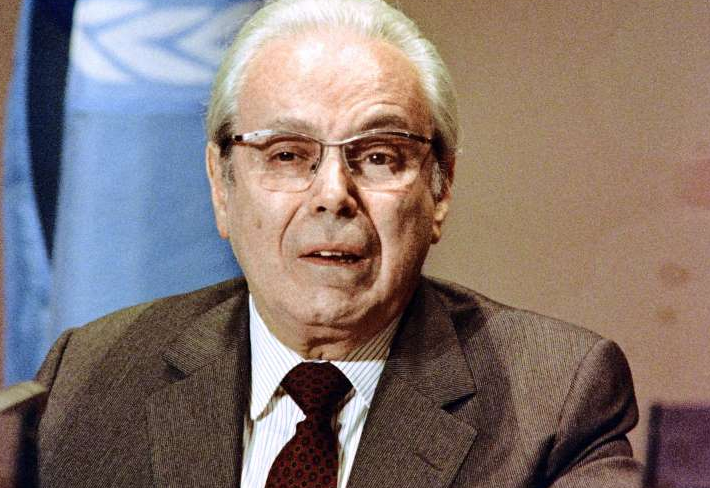
File: UN Secretary General Javier Perez de Cuellar. [Photo: Getty]
In the two terms he served as United Nations secretary general , from 1982 through 1991, Javier Pérez de Cuéllar helped end a 10-year war between Iran and Iraq; secured the withdrawal of Soviet forces from Afghanistan; wound down conflicts in Cambodia, El Salvador and Nicaragua, and shepherded Namibia to independence from South Africa. His United Nations peacekeepers won the 1988 Nobel Peace Prize for work in Mozambique and Angola.
Javier Pérez de Cuéllar, the soft-spoken Peruvian diplomat who led the United Nations as its fifth secretary general through bitter confrontation with the U.S. Congress during the Reagan administration to a period of unprecedented peacemaking that coincided with the end of the Cold War, died March 4 at his home in Lima. He was 100.
Peru’s foreign ministry, which announced the death, did not disclose a cause.
Mr. Pérez de Cuéllar, who served as U.N. secretary general from 1982 to 1991, was a practitioner of quiet diplomacy. He gained a reputation in his first term as a competent yet bland bureaucrat who appeared powerless to stem the tide of conflicts in Afghanistan, the Middle East and the Falkland Islands. He caught his stride after his 1986 reelection, overseeing a succession of peace deals in Central America, Africa and the Persian Gulf.
“If I want to be effective, I have to be discreet,” he said in his acceptance speech that defined his tenure. “I am not running for the Nobel Prize.”
The U.N. peacekeepers did win the Nobel Peace Prize under Mr. Pérez de Cuéllar’s tenure in 1988. But his most enduring legacy remains his quiet efforts to coax the U.N. Security Council’s five permanent members — including Cold War superpowers, the United States and the Soviet Union — to work quietly together to forge a peace deal ending the Iran-Iraq war, a conflict that cost more than 1 million lives.
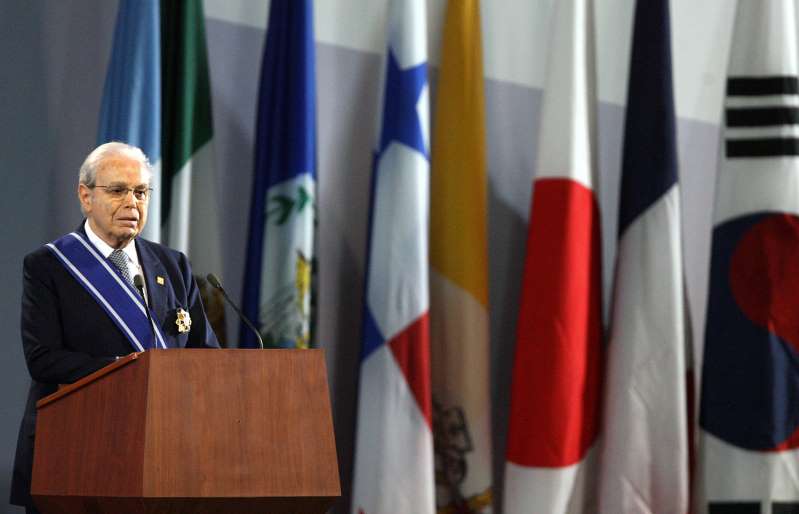
“Pérez de Cuéllar took an organisation that had almost self-destructed and become irrelevant, and found a role for it that no one expected,” said the late senator Daniel Patrick Moynihan (D-N.Y.), who served as President Gerald R. Ford’s U.N. ambassador.
Javier Pérez de Cuéllar de la Guerra was born in Lima on Jan. 19, 1920. He was 4 when his father, a wealthy businessman, died, and he continued his education in Catholic schools. He graduated with a law degree from Catholic University in Lima and took his first job in the Peruvian foreign service as a $50-a-month clerk to pay his law school tuition.
He once said he decided on a diplomatic career because “it helps you to know countries, and at someone else’s expense.” He spent the next several decades in postings as Peru’s ambassador to Switzerland, the Soviet Union, Venezuela, France and the United Nations.
Mr. Pérez de Cuéllar joined the United Nations in 1975 as then-Secretary General Kurt Waldheim’s special representative for Cyprus, where the Peruvian diplomat launched negotiations between the island’s Greek President Makarios and Turkish Cypriot leader Rauf Denktash. While the standoff has persisted for more than 35 years, Mr. Pérez de Cuéllar considered his effort to prevent a bloody clash between the two sides his “principal diplomatic achievement.”
In 1979, Waldheim promoted Mr. Pérez de Cuéllar to undersecretary general for special political affairs, where he fruitlessly pressed the Soviets to withdraw their forces from Afghanistan. He was selected secretary general in December 1981 as a compromise candidate after Waldheim, running for a third term, deadlocked with the Tanzanian foreign minister, Salim Ahmed Salim.
Mr. Pérez de Cuéllar received fewer votes than some other candidates, but he prevailed because he was the only one who didn’t get vetoed. “The key to the Peruvian’s election appears to be his inoffensiveness,” according to a Los Angeles Times article at the time.
Other stories in major newspapers noted that Mr. Pérez de Cuéllar, a descendant of Spanish nobility, was all “old world cultivation and charm” with a dry wit but little spine. “Many observers believe the secretary general will preside over the collapse of the United Nations,” the Times of London reported.
Mr. Pérez de Cuéllar’s first term was marked by painful diplomatic setbacks, including fruitless efforts to oversee the withdrawal of Soviet troops from Afghanistan, end the civil war in Lebanon or to negotiate a peace deal between Britain and Argentina during the 1982 Falklands War. “The failure was not the result of his bumbling,” the Reagan administration’s U.N. envoy, Jeane Kirkpatrick, told the Security Council after the Falklands talks collapsed. “He deserves credit for the effort if not the result.”

The move proved humiliating to Mr. Pérez de Cuéllar who received repeated pledges from President Reagan to resolve the world body’s standoff with Congress.
“The idea of parading up to Capitol Hill, tugging on people’s sleeves and browbeating them about their obligation under international law — it was deeply unappealing to him. It ran contrary to his instincts,” Alvaro de Soto, a former aide to Mr. Pérez de Cuéllar, once said in a remembrance of his former boss.
Mr. Pérez de Cuéllar underwent quadruple heart bypass surgery in July 1986, after suffering chest pains. Following a swift recovery, the members of the Security Council paid him a visit and asked that he serve a second five-year term, beginning in 1987.
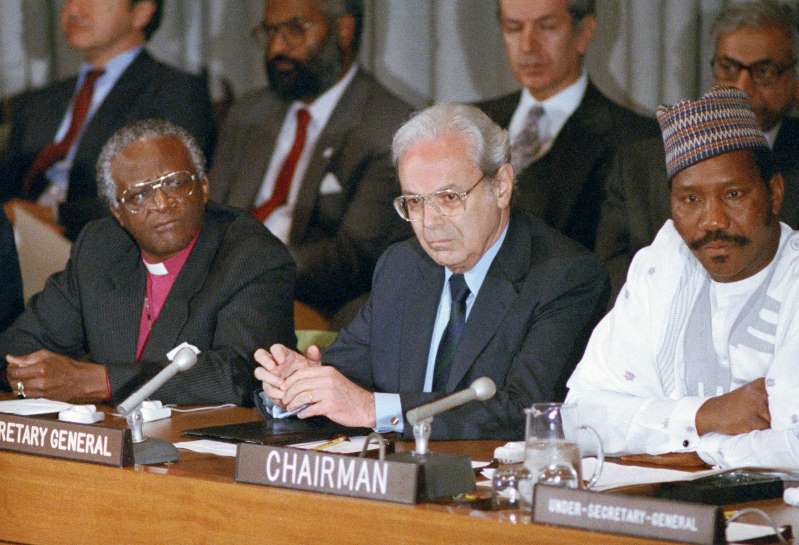
Mr. Pérez de Cuéllar oversaw a string of diplomatic successes, including peace deals ending the Iran-Iraq war and conflicts in El Salvador, Namibia and Mozambique. He said he viewed the United Nations “as the protector of civilised behaviour in the jungle of international affairs.”
But he was not without his detractors, who maintained that his studiously cultivated image for self-effacement, independence and impartiality masked a more ambitious streak and a willingness to yield to the interests of powerful states to achieve those ambitions.
Marrack Goulding, Mr. Pérez de Cuéllar’s British peacekeeping adviser, faulted his former boss for excessive secrecy, saying he regularly withheld vital communications with world leaders from the Security Council and his own senior advisers.
De Soto, a Peruvian diplomat who was recruited by Mr. Pérez de Cuéllar to serve at the United Nations, once recalled his former boss as a man who thrived in the shadows: “He was more inclined toward the work that goes unseen, sometimes one on one with difficult interlocutors. ‘Let me do it,’ he would tell me, ‘I have my wiles.’ As his efforts began to bear fruit, the words ‘Let Javier do it’ came up often in U.N. corridors.”
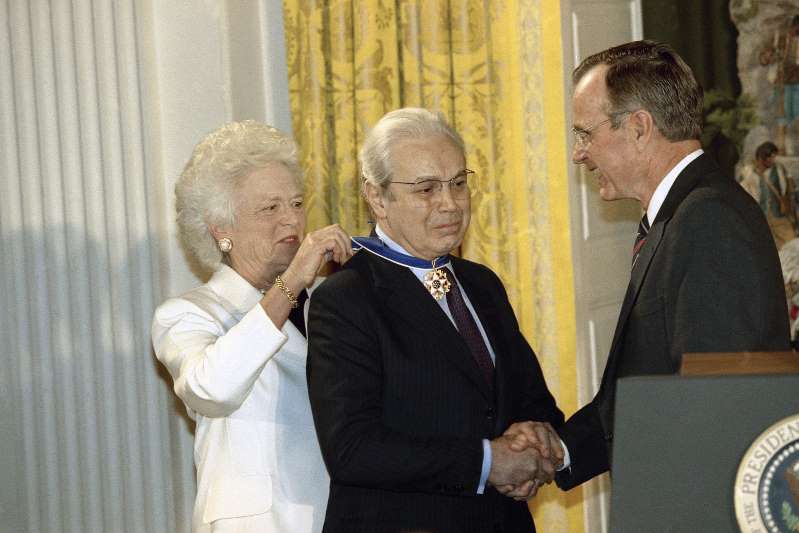
Mr. Pérez de Cuéllar’s first marriage, to Yvette Roberts, with whom he had two children, ended in divorce. In 1975, he married the former Marcela Temple. A complete list of survivors was not immediately available.
In 1991, President George H.W. Bush presented Mr. Pérez de Cuéllar with the Presidential Medal of Freedom, the nation’s highest civilian honor. Since his U.N. retirement, Mr. Perez de Cuellar remained active in diplomacy and politics, mounting a failed 1995 campaign against Alberto Fujimori for president of Peru. He subsequently served as Peru’s President of the Council of Ministers and Peru’s ambassador to France.
By Colum Lynch



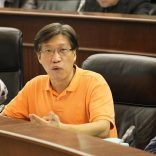









Leave a Reply
Be the First to Comment!
You must be logged in to post a comment.
You must be logged in to post a comment.